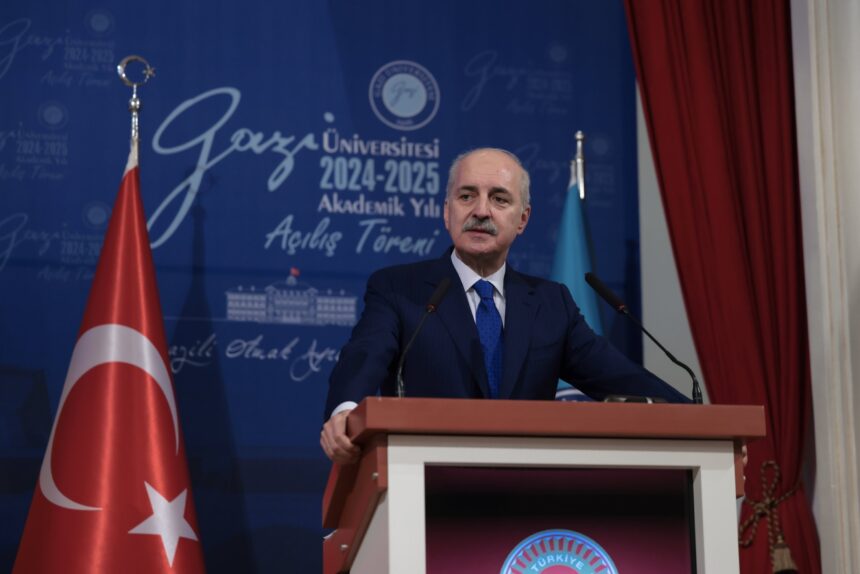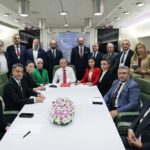Parliament Speaker Numan Kurtulmuş has advocated for the amendment of Article 3 of Turkey’s Constitution, which asserts, “Turkey is an indivisible entity with its state and nation.” During his address at Gazi University, Kurtulmuş contended that the terminology should be altered, asserting that “the state cannot possess a ‘nation’ or ‘country,'” and advocated for the constitution to underscore the state’s obligation to serve the populace. This represents a notable position as Turkey persists in its deliberations regarding constitutional reform.
He emphasized the necessity of political will to implement reforms, referencing international circumstances that require alterations in Turkey’s governance framework. Kurtulmuş stated that, given global trends, it is untenable for circumstances to remain unchanged, emphasizing the necessity of a wide-ranging consensus for progress to occur. He underscored the need for transparency in the writing process, advocating for open talks that allow all segments of society to articulate their perspectives.
Article 4 of the Turkish Constitution states that the first three articles are immutable and cannot be altered. These articles define the fundamental principles of the Republic of Turkey, including its indivisible integrity, the characteristics of the state, the official language, the flag, the national anthem, and the capital. Specifically, Article 4 explicitly states that no proposal can be made to change these provisions, ensuring their permanence as the bedrock of Turkey’s constitutional order. This ensures the state’s core principles remain intact.
This initiative furthers the AKP’s enduring objective of constitutional reform, a document initially enacted during the 1980 military coup. It has been amended numerous times to accommodate evolving political circumstances. The Republican People’s Party (CHP) has articulated objections, highlighting judicial concerns and maintaining a distance from negotiations, especially with the case of imprisoned opposition deputy Can Atalay.
Recent political developments, including attempts to reconcile with Kurdish political factions, have generated momentum. On October 12, Erdoğan discussed the potential for a fresh peace initiative on the Kurdish issue, emphasizing an unexpected action by his partner, Nationalist Movement Party (MHP) leader Devlet Bahçeli. Bahçeli, who had earlier advocated for the dissolution of the pro-Kurdish Peoples’ Equality and Democracy (DEM) Party due to purported connections with the proscribed Kurdistan Workers’ Party (PKK), engaged in a handshake with DEM lawmakers during the Parliament’s opening on October 1. Bahçeli urged the DEM Party to “transform into a party of Turkey,” indicating a possible alteration in his position.
This reconciliation initiative may play a crucial role in garnering wider political backing for constitutional revision, given that the Kurdish problem has historically been a divisive subject in Turkey. The inclusion of the DEM Party in constitutional negotiations may indicate a more inclusive strategy, thereby fostering stronger unanimity on the comprehensive reform program.
Kurtulmuş’s advocacy for amending Article 3 and his initiative for a new constitution underscores the Turkish government’s emphasis on upgrading the nation’s governance framework. Despite persistent political impediments, especially in garnering opposition backing, the current dialogues signify a pivotal juncture in Turkey’s political development. Amidst converging global influences and domestic dynamics, the critical inquiry is whether these initiatives will culminate in a genuinely transformational constitutional framework that embodies the aspirations of all sectors of Turkish society.
By: NAT Editorial Team



